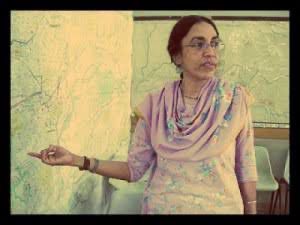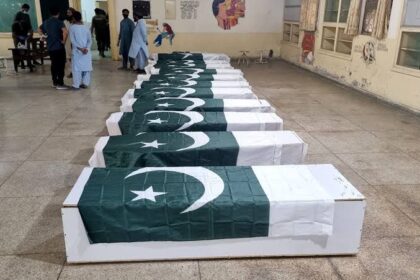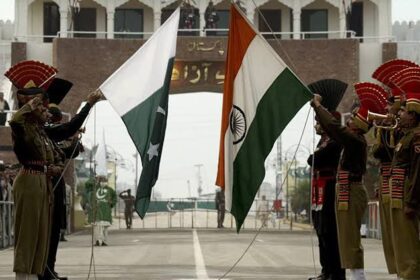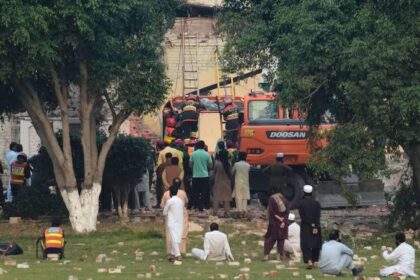In a city where the roar of vehicles often drowns out the voices of its most vulnerable, there exists a story of quiet resilience—a story that has been silenced for far too long. Karachi is known for its metropolitan nature, which has attracted many in the name of labour and a compensated occupation. This has led to an abnormal increase in the population and thus, a substandard quality of life for many. On top of this, the mafias in the city, combined with the everlasting gang wars, are mounting the numbers of terrorism in the city, encapsulating its citizens with an ever-present state of fear.
After the partition of Pakistan in 1947, Karachi was being infiltrated by migrants searching for a new place to call home. The government, having no planning whatsoever, suggested that the people may settle in the barracks of the British, low-income settlements, or any other area that they could find. In such a state of commotion and confusion, people had to fend for themselves, settling at any place that they could find. During the fall of Dhaka, the government, yet again, had no substantial plan for the settlement of refugees. In her documentary by Mahera Omar, Parveen notes that the formation of such low-income settlements was a symbol of failure on the part of the government. Moreover, such settlements rose in numbers dramatically, and thus, the government failed to provide proper documentation for them, recording only 20 such settlements, which, according to deep research by Parveen and her team, turned out to be approximately 2,000 in number.
Early life and joining the Orangi Pilot Project:
Parveen Rehman was born in Dhaka in 1957. Receiving her early education from East Pakistan, Rehman and her family were evicted from their home and were supposed to find shelter in West Pakistan after the fall of Bengal. Overpowered by a sense of disposition, the security of housing at that time might have been the motive that guided Parveen in the later years of her life. She received an excellent education as a student of St. Joseph’s Convent and Dawood University of Engineering and Technology. Initially, having had an architectural degree at hand, she worked with an architectural firm. However, after being inspired by the founder of OPP, Akhtar Hammeed Kha, she soon left the firm to join the Orangi Pilot Project as an unpaid intern.

The Struggles of Orangi Town:
Being the home of almost 1.2 million people, Orangi had seen no change in infrastructure since the 1960s. Unfortunately, due to the lack of development, people had no access to sanitation and proper housing. As OPP started in the 1980s, Orangi Town was introduced with toilets and sanitation systems. Moreover, due to being an unmapped settlement, corruption was high, which also led to 41 percent of Karachi’s water being stolen by water mafias who were supported by the government and police agencies. Apart from that, due to the settlements being informal and no amount of documentation present to prove otherwise, the government started evicting people, a situation Rehman herself was quite familiar with.
Parveen Rehman and the OPP:
Joining as an unpaid intern, Parveen Rehman soon rose to prominence within the organisation, steering its leadership. She aided in creating an institutional arrangement for the documentation of informal settlements by mapping every informal settlement in Karachi. Rehman maintained that mapping was an essential tool for the protection of such settlements, since without a map, no proof of development exists. This initiative led to the government agencies being responsible for the sanitation, water supply, and housing. Moreover, Rehman’s mapping proved the government’s record wrong, where 400 such settlements were recorded by the government, which turned out to be 2000 in number after the research.

Parveen Rehman’s demise:
Facing backlash, Rehman received a series of threats but remained committed to her motive. March 13, 2013, marked a wretched day when Parveen Rehman was gunned down by 4 men near the Pirabad Police station in Orangi. The motive behind her murder was proved to be land grabbing by a joint investigative team. In 2020, the JIT reported that a lack of tolerance in the Pashtun community towards a Bihari lady heading a predominantly Pashtun and Afghan area, along with the motive to grab the OPP office land, led to the murder of Parveen Rehman. However, a lot of loopholes can be seen in this report, such as why did the threats only begin when the water mafia was threatened? Another question that comes to mind is that Parveen continued to work in Orangi for more than 20 years, and no one seemed to question her work. So why did the blackmail only begin after she reached the verge of something big? Was a measly office land grab really the purpose of the murderers, or was it to silence the truth that was discovered by Rehman?
It is important to note that Parveen Rehman’s efforts did not go in vain; rather, they encouraged people to stand up for themselves and made them realise that the only ones who have the ability to make things better for us are ourselves. Her efforts influenced approximately 3 million people and continue to have an impact on the population to this day. We should learn from Rehman’s efforts and start taking our problems into our own hands. The government has always been proven to be negligent of the country’s needs and even today has not provided the citizens with the facilities to prove otherwise.












